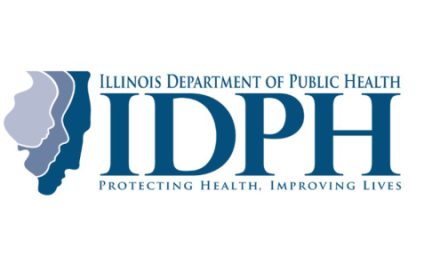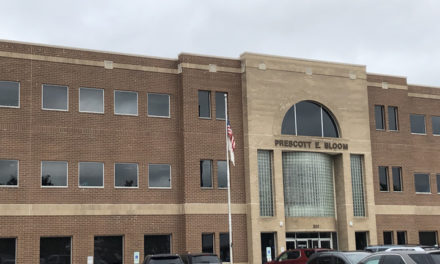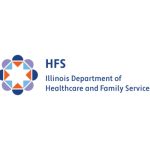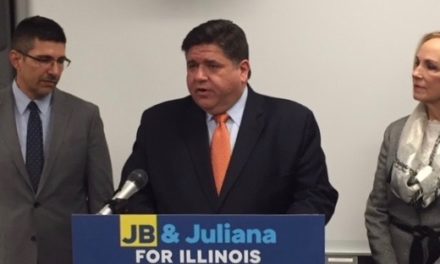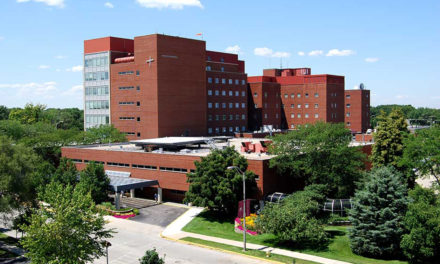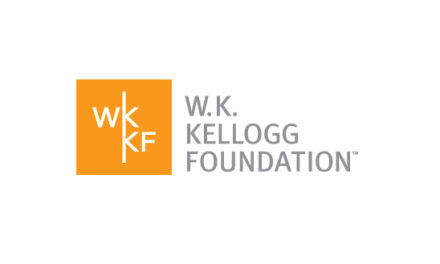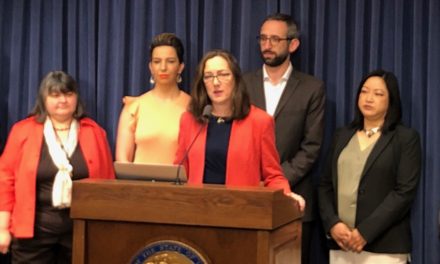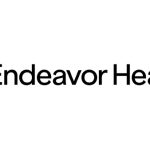
Comptroller Susana Mendoza talks protecting critical access pharmacies in Illinois
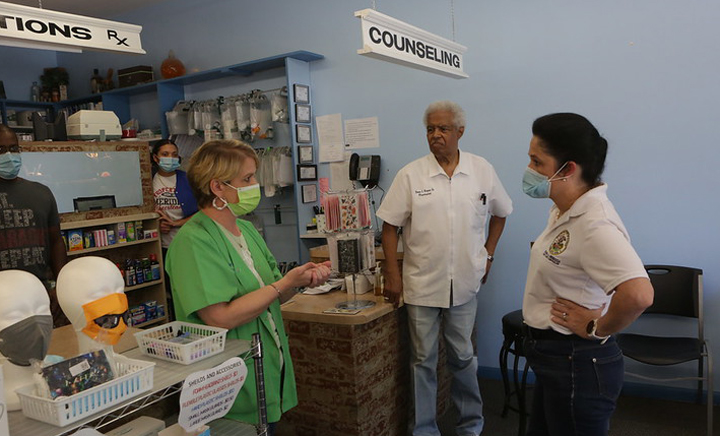
As she tours Illinois, Comptroller Susana Mendoza is taking a particular interest in the well-being of independent pharmacies serving rural and medically underserved communities.
She spoke with Health News Illinois this week to highlight the importance of a program aimed at supporting pharmacies in some of the state’s most rural areas.
According to her office, 103 pharmacies participated in the Critical Access Pharmacies program in fiscal year 2022.
Mendoza also raised concerns about pharmacy benefit managers and their impact.
“I have not seen evidence to suggest that the state is actually saving money with these PBM in the mix,” she said. “My experience has been that I would rather pay pharmacists directly, and I believe that actually save us money by doing so just based on the numbers that I’ve seen.”
Melodie Shrader of the Pharmaceutical Care Management Association, which represents PBMs in Illinois and across the country, said in response to Mendoza’s comments that they looking forward to sharing with her how they “are lowering out-of-pocket medication costs for Illinois residents.”
“The evidence is clear that PBMs work, saving Illinois residents on average $962 a year in drug costs,” Shrader said. “Taxpayers benefit from PBMs too, as they will help the state Medicaid system save over $2 billion in this decade alone. The evidence also shows that independent pharmacies have remained both stable and profitable while Illinois has used PBMs to lower drug costs for residents.”
Edited excerpts of the interview with Mendoza below.
HNI: Tell me more about the state’s CAP program.
SM: So with the state’s CAP program … $10 million was appropriated each of the last four fiscal years, so that would be fiscal years 19 through 23 to be exact. To give you an idea, in fiscal year 22, $9.4 million of that 10 million was actually expended. And (the Department of Healthcare and Family Services) said this $9.4 million meets the program demand for fiscal year 22. And that just goes to show that the $10 million is essentially a critical number for these pharmacies that, without this money, if you were to interview many of them, I would not be surprised if they would tell you straight out that they would not have survived without these CAP payments. So this CAP program is critical to their survival.
It’s so interesting. Anywhere I go in Illinois, especially when I go into rural areas, something that I like to do is go visit the pharmacist and ask them about how the program’s working for them. And it’s really important for me to get out there and talk to them directly. Because when you think about pharmacists, and certainly I think this takes even greater importance given the global pandemic that we’ve all been faced, pharmacists are truly the closest to what is happening in the healthcare community. They’ve got their finger on the pulse of the healthcare community, and clearly they have the finger on the pulse of the people that they serve.
HNI: What are the messages you’re learning as you visit these pharmacies? What are some of the biggest challenges facing them?
SM: I think the PBMs, without a doubt. And the PBMs, my understanding, talking to so many of these local pharmacists, is that it’s this unnecessary middleman in this equation. And so, while the CAP program is very important, it’s almost like a Band-Aid approach to a solution. It’s not a long-term solution. I believe that the PBMs have not necessarily proven their worth in terms of saving money, but they’ve made a ton of money. And at the same time, these local pharmacists are receiving pennies on the dollar of what it costs them to actually give out these meds and portion them and distribute them.
HNI: We spoke in 2019 about the challenges of the budget backlog on payments to healthcare. How have things gone since? And what steps are you taking to help pharmacies?
SM: I would say that we’ve come a long way since then (2019). To your question, we paid down our borrowing. We eliminated the backlog. We cut our payment cycle down to well under 30 days. We’ve got six credit upgrades since our last conversation. I put $1 billion dollars into the state’s rainy day fund, put an extra $500 million towards pensions, and we’re giving $1.8 billion in tax relief to taxpayers.
In regards to state healthcare and medical programs, back then, when we talked (in 2019), we had a nearly $4 billion backlog of medical bills for healthcare or Medicaid and for the state employees … Many doctors, dentists and healthcare professionals hadn’t been paid for months. They were charging patients upfront because otherwise, their businesses wouldn’t survive. So clearly it hurt access and delivery of healthcare.
We took advantage of earning $2 billion from the Federal Reserve allowed under the federal (Coronavirus Aid, Relief, and Economic Security) Act. And I used that to make sure that healthcare entities received their state payments at this incredibly crucial time. So those healthcare companies, people offering healthcare services, did not skip a beat during the darkest days of the pandemic because I utilized that $2 billion from the Federal Reserve to make sure that they stayed afloat and got paid on time. And I’m really proud to say that for all the past year-and-a-half, we’ve actually paid Medicaid bills well under 30 days – more like really 15 to 25 days. In fact, this week, we literally had zero pending Medicaid bills. We’re completely paid up.
HNI: What more can policymakers do to help?
SM: It used to be the payments, like predictability of payment. That I’ve already taken care of. So really their biggest challenges right now (are PBMs). And thankfully we have the CAP program. But again, that was done legislatively. (Former Bunker Hill Democratic Sen. Andy) Manar was a real champion in that respect. And we worked with him back when we were trying to get that done, and he was just a massive leader on this issue. But again, I feel like it was a necessary thing at the time to help quickly, but the underlying issue here is PBMs. Clearly, the CAP funding has helped. But again, I feel like it’s a Band-Aid approach to trying to like—you’re putting duct tape on something that’s frankly just broken.

